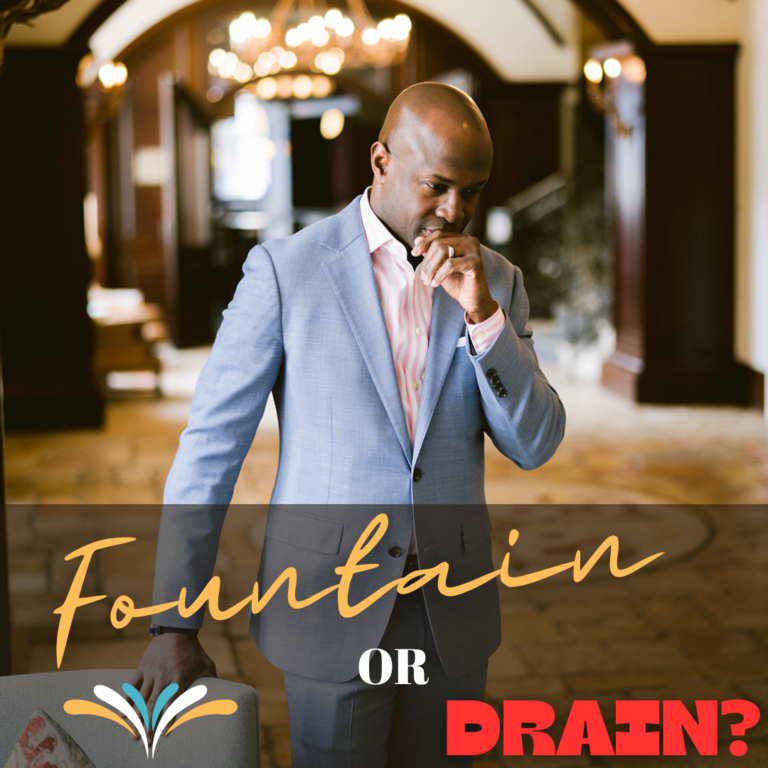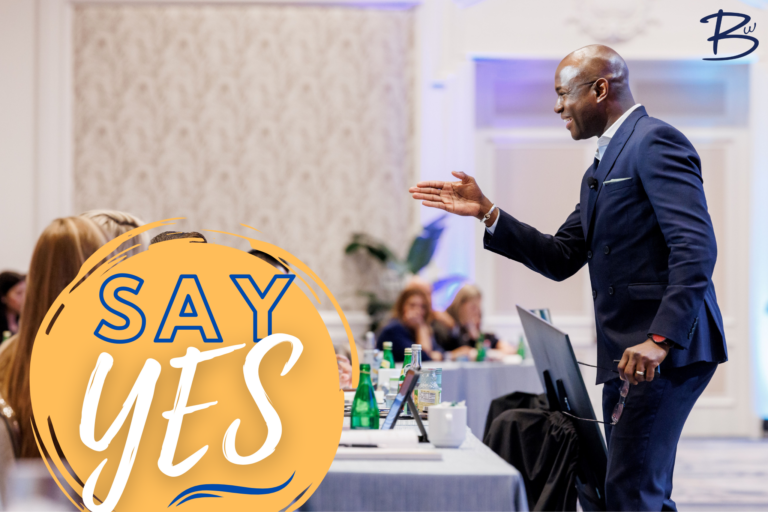
Are You a Fountain or Drain?
Fountains give nourishment. Drains take it away. Am I a fountain or a drain? That is the essential question that each of us should ponder
Share this post:
A few years ago, I saw some statistics that showed the top reasons why customers stop using companies:
I recently had an experience with a telephone company that perfectly reinforced that last statistic. For the past four years, I’ve consistently used a particular long-distance phone company. Since I recently moved to a new residence, I attempted to transfer my cable service, utilities, phone, etc. Everything was smoothly transferred except for the phone service. Initially, I was promised the phone service would be transferred on a certain date. It wasn’t done. I called back a day after they promised, and they told me it would be done a week later. Still not done. I kept getting transferred from department to department and had to re-explain myself each time. No one from the phone company seemed to take ownership and no one followed up when they said they would. This included the supervisors. I eventually ended my relationship with the phone company and transferred to another phone provider, who connected my service the very next day.
Note: My transfer had nothing to do with the product (phone service). It had everything to do with the attitude of indifference from multiple employees. The biggest issue was that no one followed up with me. If someone had proactively called to give me an update, the relationship may not have ended.
As for the new phone company, the same day I received the service, I also received an automated phone call thanking me for choosing them. I never got around to answering the phone, so they called back the following morning to ask a few questions about all facets of the service experience. Follow up, follow up, follow up.
Follow-up is an art form. Some people have it down to a science. In many ways, one of the biggest differences between good, great, and engaging service is the quality of the follow-up. So what is the first step towards mastering this rare art form? It can be summed up in one phrase: Take ownership. Take ownership of whatever the issue is…that’s it. If you receive a complaint or if you are given a request, you own it. It’s yours. Don’t pretend it’s not or hope that the customer complains to someone else. A company I used to work with would say, “You ate it…you own it”. Once you own the issue, then the next step is to resolve the issue to the customer’s satisfaction. Then, you’ve got to follow up like you’ve never followed up before.
Let me give you an example. One of my first jobs in the hotel business was as a towel attendant. Yes, I spent many days in the sun wearing beach shorts, and giving out towels to resort guests. One day, a guest walked up to me, took one look at my name tag and said “Bryan, my suite’s air conditioning is not working”. Even though I clearly was not dressed like I worked in the maintenance department, the guest asked me anyway. Do you know why? Because he didn’t care which department I worked in. Nor should he have cared. All he should have been concerned with is that I was an employee of the resort; therefore, I should be able to assist. So here’s what I did.
Note: Chances are the guest did not think that the towel attendant (me) would personally go up to his room and fix the air conditioning. He did, however, TRUST that the air conditioning would be fixed when he got back to his room.
At that stage, I relayed the issue to the maintenance department…after all, they are the ones who will actually go into the suite and fix the air conditioning. So since I’ve given the issue to the proper department, my work is done right? Wrong. The maintenance department told me they would get to the suite in 45 minutes to fix the problem. So I then told the guest that the problem will be taken care of in 45 minutes. I’m done now right? Wrong. My next step was to follow up to ensure that the suite, in fact, got fixed. When I checked with the maintenance department, it was fixed! Now surely I’m done right? Wrong. The purpose of following up is to ensure that the issue has been taken care of to the guest’s satisfaction. So my next step was to let the guest know that the room had been fixed. This is the platinum rule at its best. Give the guest what they want. In this case, the guest wanted their air conditioning fixed, and it got fixed so now surely all is right with the world. Not so fast.
If the purpose of follow up is to ensure the issue has been taken care of to the guest’s satisfaction, how will I know that the guest is satisfied if I don’t ask him? So the final step was to call the guest when he finally got back to his room to ensure he was happy with the resolution…which he was. I even sent a hand-written note to the room apologizing once again and thanking him for choosing our resort. Do you think the guest expected for the towel attendant to follow through like that? Absolutely not, but I am sure it left a memorable impression.
Leadership Note: To foster this “follow-up” culture within your team, begin with a clear standard relating to owning issues. Relentlessly state that if anyone on your team receives an issue, they own it. It doesn’t matter who it is. Then reward positive behavior every chance you get. Do not tolerate it when someone passes along the issue. Keep a follow-up log if you need to. Of course, you must be an example of what you want to see.
The ultimate goal is to follow up until you are confident the guest is happy with the resolution. If you do that, success is sure to follow. While some statistics may show that 67% of customers leave because of an indifferent employee, I would also bet that a significant % of guests are loyal because of a caring employee who takes ownership and follows up. Let “ownership” be your key word as you move forward, and commit the rest of this year to foster a culture of follow-up on your team.

Fountains give nourishment. Drains take it away. Am I a fountain or a drain? That is the essential question that each of us should ponder

Yes. Three letters. Small, but mighty. There is so much that is written about boundaries and saying “no.” Make no mistake, boundaries are essential. They